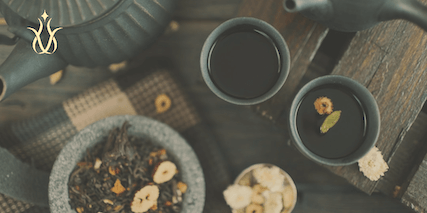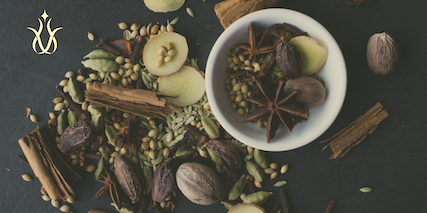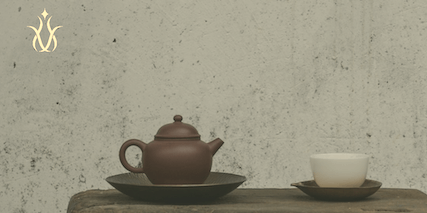Are the benefits of cloves tea more than aromatic allure? From easing pains to bolstering immunity, this spice-infused tea may hold the key to diverse health improvements. Join us as we explore how a simple cup of cloves tea could make a difference in your wellbeing, with scientific insights to satisfy your curiosity without overwhelming detail.
Key Takeaways
-
Clove tea is revered for its anti-inflammatory and antioxidant properties, capable of providing pain relief, potentially fighting cancer, and enhancing immune and liver health.
-
Regular consumption of clove tea may contribute to oral health through its antibacterial properties, aid digestion, and offer respiratory relief, bolstering overall well-being.
-
While clove tea offers numerous health benefits, caution is advised regarding its interaction with certain medications, potential side effects, and suitability for pregnant or breastfeeding women, children, and individuals with allergies.

Discovering Clove Tea: A Flavorful Elixir
Clove tea, a traditional remedy in East African and Southeast Asian countries, is a flavorful brew derived from the dried flower buds of the clove tree. The clove tree’s native habitat contributes to the tea’s distinctive and rich flavour. This tea’s unique flavour profile not only adds a delightful twist to your regular tea routine but also brings along numerous health benefits.
Clove tea, with its fragrant spice, is frequently used to enhance the flavour of savoury dishes. It can be enjoyed in its pure form or combined with other spices to add depth and complexity to the flavour. Beyond its culinary uses, this spice, cherished for its numerous health benefits, has served as a traditional medicine in various cultures. Clove bud oil, derived from the same plant, is another popular product with similar applications. Additionally, clove essential oil, clove leaf oil, and clove extract are often utilized for their therapeutic properties. Clove water, as a milder alternative, can also be used for similar purposes.
Clove Tea vs. Clove Oil and Essential Oils
While the benefits of cloves are celebrated in many forms, clove tea and clove oil stand out for their distinct uses. Clove oil, commonly available in health food stores and supermarkets, is best known for its effectiveness in relieving dental pain when applying clove oil. The essential oil, extracted from the same dried flower buds of the clove tree, has been a trusted remedy for toothaches for centuries.
Nevertheless, clove tea brings a unique set of benefits to the table. It is an aromatic infusion that delivers the health benefits of cloves in a soothing, warm drink. While clove oil is typically applied externally or used sparingly due to its potency, clove tea can be enjoyed regularly, allowing you to harness its health benefits in a more gentle and enjoyable way.
The Active Compounds in Clove Tea that Contribute to its Health Benefits
Eugenol, eugenyl acetate, and β-caryophyllene are the primary bioactive compounds in clove tea that contribute to its health benefits. Eugenol has been extensively studied and is known for its antioxidant, anti-inflammatory, and anticancer activities. It modulates chronic diseases through its radical-scavenging and anti-inflammatory activities, which have been shown to alleviate and prevent chronic diseases in vitro and in vivo.
Eugenol also exhibits significant anticancer effects by affecting various biological pathways, including apoptosis, autophagy, cell cycle progression, inflammation, invasion, and metastasis.
Eugenyl acetate, while less studied than eugenol, is also a significant phytochemical in clove oil and contributes to the overall antioxidant capacity of clove tea. It is a derivative of eugenol and is thought to possess similar pharmacological properties, although specific health benefits and mechanisms of action are less well-characterized in the medical literature.
β-caryophyllene is another major component of clove oil that has been identified as having potential health benefits. Unlike eugenol, β-caryophyllene did not exhibit cytotoxic activity in the study mentioned, indicating that it may have a different profile of biological activities.

Top Health Advantages of Drinking Clove Tea
The health benefits of clove tea are diverse and plentiful. Its potent anti-inflammatory properties can provide relief from various forms of pain and discomfort, including headaches, toothaches, and muscle soreness. The antioxidants it contains, particularly those compounds known to fight cancer cells, give it potential cancer-fighting properties.
In addition to pain relief and potential cancer prevention, clove tea is also known for its potential to:
-
Lower blood sugar levels
-
Improve blood circulation, enhancing oxygen and nutrient transportation throughout the body, leading to better overall health
-
Boost the immune system
-
Support liver health, preventing fluid imbalances and liver damage
Regular consumption of clove tea and drinking clove water may provide potential health benefits.
Given its vast range of health benefits, it’s hardly surprising that clove tea has been revered as a remedy in traditional medicine for centuries. Whether you’re seeking pain relief, an immunity boost, or just a comforting, flavorful drink, clove tea has something to offer.
Antioxidant Powerhouse
Clove tea’s antioxidant properties are among its most celebrated health benefits. Clove is rich in a variety of antioxidants, vitamins, and minerals. When consumed in the form of tea, these antioxidants can provide the body with a significant boost.
Clove tea, a rich source of antioxidants, plays a vital role in shielding cells from oxidative stress. By reducing oxidative stress, the antioxidants in clove tea may help lower the risk of chronic diseases. As a potential weapon against various health issues, clove tea underscores its reputation as an antioxidant powerhouse.

Nutrient-Rich Brew
Beyond its antioxidant properties, clove tea is also a nutrient-rich brew. Cloves contain fibre, vitamins, and minerals, which are essential nutrients that contribute to overall health when infused into the tea.
Ingesting clove tea not only allows you to savour a tasty beverage but also enriches your body with vital nutrients. This makes clove tea a dual-purpose brew that tastes good and does good!
Immune System Booster
The benefits of clove tea also encompass the immune system. It contains antimicrobial properties that can effectively inhibit the growth of various microorganisms, such as bacteria, in the body.
Diminishing the quantity of harmful bacteria, clove tea fortifies the immune system, thereby promoting overall health and warding off diseases. In times when good health is of paramount importance, the immune-boosting properties of clove tea add to the reasons why it should be a part of your regular diet.

Additional Health Benefits of Clove Tea
Apart from its primary health benefits, clove tea offers extra perks that distinguish it as an extraordinary beverage. It aids in moderating blood sugar levels, which may lead to better insulin management. Regular consumption of clove tea may also help improve liver function and lower inflammation within the liver.
Furthermore, this fragrant tea, often used in traditional chinese medicine, is associated with enhanced blood circulation, thus aiding in more efficient delivery of oxygen and nutrients to the body’s organs.
Respiratory Relief
If you’re prone to respiratory issues like coughs, colds, and asthma, clove tea can be your soothing aid. It helps clear congestion and alleviates respiratory discomfort. By clearing congestion, clove tea facilitates easier breathing and respiratory comfort, making it an excellent beverage, especially during cold seasons.
Clove tea’s calming qualities can alleviate irritation in the respiratory tract. Whether you’re battling a stubborn cough or seeking comfort from a cold, a warm cup of clove tea can provide much-needed relief.
Oral Health Support
Clove tea extends its benefits to oral health as well. It contains potent antibacterial properties that reduce the growth of bacteria that lead to oral diseases such as gingivitis and cavities. Studies suggest that a clove-based herbal mouthwash can significantly reduce the bacteria causing dental plaque, cavities, and gum disease.
Drinking clove tea regularly can bolster oral health by curbing bacterial growth and thwarting cavity formation, thus promoting healthier gums and teeth. So, the next time you sip on clove tea, remember it’s not just a tasty brew but also a natural dental care routine!
Digestive Aid
Clove tea is a friend to your digestive system. Drinking it after meals assists in the process of healthy digestion. It stimulates the release of digestive enzymes, which are necessary for efficient digestion. Consumption of clove tea can alleviate common digestive symptoms like indigestion and bloating, making it an effective digestive aid.
If you often grapple with digestive issues, it might be beneficial to incorporate clove tea into your post-meal regime. Not only will it aid digestion, but it will also serve as a soothing end to your meal.
How to Incorporate Clove Tea into Your Daily Routine
Now that you’re well-versed in the myriad health benefits of clove tea, it’s time to explore how to incorporate it into your daily routine. Whether you’re a seasoned tea drinker looking for a new flavour to try or a health enthusiast seeking natural remedies, clove tea is an excellent addition to your daily meal plan.
Incorporating clove tea into your diet could yield lasting health benefits. Starting the day with a freshly brewed cup of clove tea can help you reap its benefits throughout the day. Alternatively, replacing a daily regular beverage with clove tea is a straightforward way to weave it into your routine without substantial changes.

Brewing the Perfect Cup
Brewing the perfect cup of clove tea is a straightforward process. Here’s how to do it:
-
For a single cup, use either 3-4 whole cloves or 1/4 to 1/2 teaspoon of ground cloves.
-
For a richer flavour, consider adding ginger and cinnamon sticks.
-
Pour boiling water over the cloves, or boil them with water.
-
Allow steeping for 5-10 minutes if using whole or ground cloves alone or up to 15-20 minutes when combined with ginger and cinnamon.
After steeping, enhance the clove tea by stirring in sweeteners such as honey or adding a refreshing twist with lemon juice. With these simple steps, you’ll be able to brew a perfect cup of clove tea that’s both flavorful and brimming with health benefits.
Creative Clove Tea Recipes
Beyond the classic hot brew, clove tea can be enjoyed in creative ways. For a refreshing twist, consider enjoying it as a cooled beverage served over ice.
Moreover, ground cloves, used in clove tea, are versatile in cooking. They can be added to:
-
spice mixes
-
seasoned meats
-
baked goods
-
chai or Chinese five-spice blends
This way, you can enjoy the benefits of cloves not only through a comforting cup of tea but also through a variety of delicious meals.
Precautions and Potential Side Effects
Despite the many benefits of clove tea, it’s crucial to stay informed about potential side effects and interactions. Here are some important considerations:
-
Pregnant and breastfeeding women are advised to avoid consumption of cloves or clove oil due to insufficient safety data.
-
Children may also be at risk of liver damage and seizures when exposed to clove oil or consuming it.
-
Ingesting large quantities of clove can cause acute seizures, liver and kidney damage, and coma.
Clove oils can interact with diabetes medications, causing blood sugar levels to drop too low. Hence, it’s imperative to exercise moderation in consuming clove tea to prevent unwanted effects.
Interactions with Medications
Certain medications might interact with clove tea. For instance, consuming clove may increase the effects of warfarin, a commonly prescribed blood thinner, which can lead to a higher risk of bleeding. In addition, a compound in clove, eugenol, has been found to decrease the levels of enzymes known as glutathione-S-transferases (GSTs), which could affect the metabolism of certain medications.
This highlights the importance of consulting with a healthcare provider before incorporating clove tea into your routine, especially if you are on medication. Despite the numerous health benefits of clove tea, it’s vital to ascertain its compatibility with your unique health conditions.
Allergic Reactions and Sensitivities
While rare, allergic reactions to cloves or clove oils can occur, manifesting as:
-
skin irritation
-
irritation in the mouth
-
redness
-
pain
-
swelling
-
fever
An allergy to cloves can be diagnosed through blood tests that measure the concentration of Immunoglobulin E (IgE) antibodies, with elevated levels indicating an allergy.
It’s also worth noting that using clove on the skin can lead to severe burning, redness, pain, or swelling in some cases. Oral ingestion of clove may result in lactic acidosis, liver problems, or signs of infection in sensitive individuals. Hence, it’s advisable to stay vigilant about your body’s response to clove tea and seek medical advice if you observe any negative reactions.
Summary
In summary, clove tea is a flavorful and healthful beverage, offering a host of benefits from its antioxidant, anti-inflammatory, and antimicrobial properties. Whether it’s boosting your immune system, supporting oral health, aiding digestion, or providing respiratory relief, the benefits of clove tea are bountiful. However, it’s important to consume it in moderation and be aware of potential side effects or interactions with medications. So, go ahead and savour a cup of this fragrant elixir while basking in the knowledge of its numerous health benefits.
Frequently Asked Questions
Is clove tea good for health?
Yes, clove tea is good for health as it is rich in antioxidants and anti-inflammatory and antimicrobial properties, providing relief from pain, supporting oral health, aiding digestion, and boosting the immune system.
How do you brew the perfect cup of clove tea?
To brew the perfect cup of clove tea, use 3-4 whole cloves or 1/4 to 1/2 teaspoon of ground cloves, and steep them in boiling water for about 10 minutes to achieve the best flavour.
Can clove tea interact with my medications?
Yes, clove tea can interact with medications, such as warfarin, potentially increasing their effects. It’s important to consult a healthcare provider before consuming clove tea while on medication.
Can I have an allergic reaction to clove tea?
Yes, allergic reactions to clove tea can occur, but they are rare. Symptoms may include skin irritation, mouth irritation, redness, pain, swelling, or fever. If you experience any adverse reactions, it’s best to stop consuming it and seek medical advice.
Can I incorporate clove tea into my cooking?
Yes, ground cloves from clove tea can be a great addition to spice mixes, seasoned meats, baked goods, and chai or Chinese five-spice blends, allowing you to incorporate the benefits of cloves into a variety of delicious meals.
Disclaimer: This article is for informational purposes only and should not replace professional medical advice. If you have specific concerns or medical conditions, it is recommended to consult with a healthcare professional for personalised guidance and support.
Resources
Bioactive Properties of Clove () Essential Oil Nanoemulsion: A Comprehensive Review.
Pandey VK, Srivastava S, Ashish, et al.
Heliyon. 2024;10(1):e22437.
NM J, RM R, G G, et al.
Food & Function. 2015;6(10):3373-82.
Chaieb K, Hajlaoui H, Zmantar T, et al.
Phytotherapy Research : PTR. 2007;21(6):501-6.
Maggini V, Semenzato G, Gallo E, et al.
Molecules (Basel, Switzerland). 2024;29(5):999.





